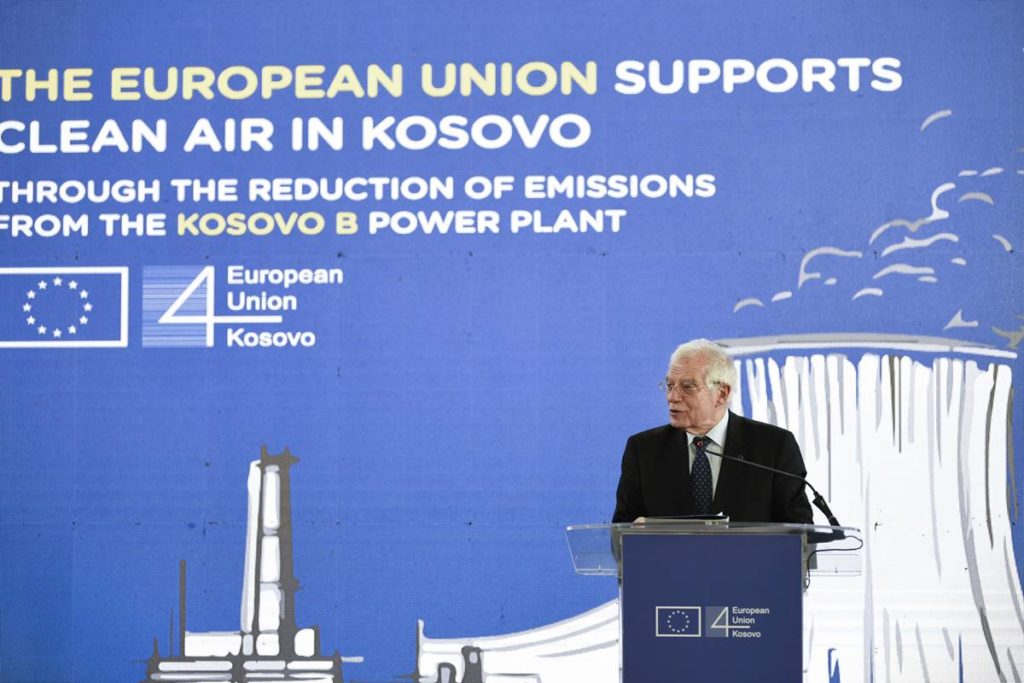Serbia and Kosovo signed letters of intent on Friday on resuming rail and road connections. On the wider issue of mutual recognition, a condition for joining the EU, not much progress has been made since the EU facilitated high-level dialogue between the two countries started in 2012.
The breakthrough in the transport talks was made possible thanks to US mediation and was welcomed by EU and the presidents of the two countries. Another agreement to restore commercial flights was signed in January, also under US mediation.
Direct flights between Pristina and Belgrade have been disconnected since the armed conflict in Kosovo in 1998- 1999 when NATO intervened. However, the implementation of the air agreement is conditional on Pristina lifting its 100% tariffs on imports from Serbia.
The tariffs were imposed in November 2018 in response to alleged Serbian opposition to Kosovo joining international organisations. Kosovo’s new prime minister Albin Kurti has reportedly promised to reconsider the tariffs.
The absence of EU representatives at the signatures of the transport agreements has fueled speculations about EU´s role in the dialogue. However, on his first visit to the Western Balkans (30 January – 1 February), EU’s new foreign policy chief Josep Borrell visited Serbia and Kosovo.
He expressed his commitment to facilitating the dialogue between Belgrade and Pristina, and to bringing the region closer to the EU. His predecessor as High Representative, Federica Mogherini, was active in chairing the EU facilitated high-level Pristina-Belgrade dialogue.
The aim of the dialogue is to normalise the relations between Serbia and Kosovo and to enable the two countries to achieve a comprehensive legally binding agreement solving all outstanding issues. But besides some progress in technical matters the core issue of recognition has not been resolved.
According to a briefing last year by the European Parliamentary Research Service (EPRS), the dialogue was initially successful and resulted in 33 agreements, mostly on technical issues. However, implementation of many of these has been slow and incomplete.
Recognition core issue
Since 2016, dialogue has stalled, with several meetings delayed or cancelled and little progress on implementing previous commitments or on concluding new agreements. The tone of the meetings has become increasingly acrimonious, with repeated threats by both sides to pull out of the dialogue.
A promising step on local self-government for the Serb-majority municipalities in Kosovo was taken some years ago but the Kosovo Constitutional Court ruled that it was unconstitutional and progress on this is now deadlocked.
Achieving Serbian recognition of Kosovo is even more of a conundrum according to the briefing. Kosovo declared independence in 2008 but five EU member states, Spain, Cyprus, Greece, Romania and Slovakia, do not recognise its dependence.
The main incentive which the EU can offer the two sides to keep talking is the prospect of eventual EU membership, provided that the issue of recognition is solved. EU will not repeat its mistake in the past to accept new member states that have not resolved their regional disputes.
In the meantime, EU continues to support the normalisation process and to prepare both countries for EU membership without explicitly demanding recognition at this stage. That would be difficult considering that opinion polls in Serbia show that a majority is against recognition of Kosovo.
At the daily press briefing on Friday (14 February), Peter Stano, the spokesperson for the European External Action Service (EEAS), explained that the Commission attends all important meetings with Kosovo and Serbia but as a facilitator it cannot enforce any agreements on them.
Stano told The Brussels Times that, “Before entering the EU, Serbia and Kosovo have to resolve their issues. We call it ‘normalization of relations’, and the last chapter in the accession talks deals exactly with this”.
“The assumption and expectation are that in the course of accession talks they will be able to resolve all the outstanding bilateral issues and achieve necessary progress on the issue of reconciliation and regional cooperation.”
Since the EU admits as new members only countries that are recognized by the member states, it goes without saying that admission of Kosovo to EU will be possible only after all the member states will have recognized it, he added.
M. Apelblat
The Brussels Times

